WHO WE ARE
Total Financial Management, LLC is a comprehensive Wealth Management Firm for Individuals and/or Families with investable assets of $100,000 as well as Non Profits, Retirement Plans and Business Owners. Your dedicated team will include a CPA, CFP® & CFA on your relationship to provide you “Total Financial Management.” Additionally, for specialized questions, members of your team will have designations in advanced personal financial planning from the American Institute of CPAs, a Certified Cash Balance Consultant as well as an Accredited Investment Fiduciary Analyst (AIFA®) and Pension Plan Consultant (PCA™) affiliated with the Center for Fiduciary Studies. We also have advanced training in Social Security and Retirement Distribution Planning.
Below is a brief description of some of our credentials and certifications and how individuals with those credentials can work directly with you.
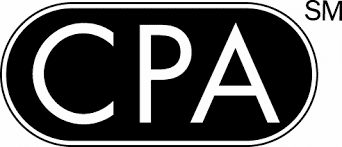
CPA – Independently we operate a Certified Public Accounting firm as well as Total Financial Management, LLC. Certified Public Accountant (CPA) is a designation given by the American Institute of Certified Public Accountants to those who meet education and experience requirements and pass a rigorous examination.
CPAs are required to obtain a bachelor’s degree in business administration, finance or accounting. They are also required to complete 150 hours of education and have no less than two years of public accounting experience. CPAs must pass a certification exam over several days. Additionally they must complete 120 hours of continuing education over three year reporting periods.
We provide individual and business taxation preparation as well as assurance services such as compilations, reviews and audits. The tax background greatly assists us in the management of investment accounts. By incorporating strategies such as where to locate assets (taxable or retirement/tax deferred accounts) can typically add .25 – 2% after tax returns on portfolios. That savings adds up over the long run. We have published several articles and have appeared on television segments showing this savings as well as presentating to accounting societies.

CPA/PFS – A Personal Financial Specialist (PFS) is a Certified Public Accountant (CPA) who meets the financial planning requirements established by the American Institute of Certified Public Accountants (AICPA). The credential is awarded only to CPAs who demonstrate the requisite experience, education, examination, and ethical standards established by the AICPA.
What are the requirements? In order to obtain the PFS credential, an applicant must be a CPA in good standing; a member in good standing with the AICPA; earn a minimum of 80 hours of personal financial planning education every two years; pass a comprehensive Personal Financial Planning exam overall several days; have at least two years (or 3,000 hours equivalent) of full-time financial planning business experience; and are to be bound by the AICPA Code of Professional Conduct
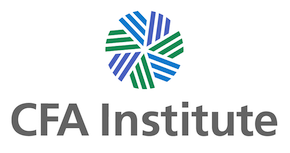
CFA – A Chartered Financial Analyst (CFA) is a professional designation given by the CFA Institute, formerly AIMR, that measures the competence and integrity of financial analysts. Candidates are required to pass three levels of exams covering areas, such as accounting, economics, ethics, money management, and security analysis.
Before becoming a CFA charter holder, a candidate must meet one of the following educational requirements. He/she must have four years of professional work experience, a bachelor’s degree or be in the final year of the bachelor’s degree program, or a combination of professional work experience and education totaling four years. For the undergraduate qualification, the bachelor’s program must be completed before registering for the Level II exam. In addition to the educational requirement, the candidate must have an international passport, complete the assessment in English, meet the professional conduct admission criteria, and live in a participating country. The CFA charter is one of the most respected designations in finance and is widely considered to be the gold standard in the field of investment analysis.
After meeting the enrollment requirements, the candidate must pass all three levels of the CFA program in sequential order. He/she must then become a member of the CFA Institute and pay annual dues. Finally, he/she must sign off annually that he/she is following the CFA Institute Code of Ethics and Standards of Professional Conduct. A failure to adhere to the ethics and standards is grounds for possible lifetime revocation of the CFA charter.
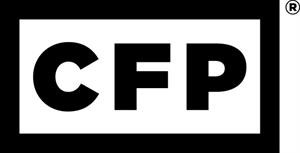
CFP® – A Certified Financial Planner refers to the certification owned and awarded by the Certified Financial Planner Board of Standards, Inc. The CFP designation is awarded to individuals who successfully complete the CFP Board’s initial and ongoing certification requirements. Individuals desiring to become a CFP professional must take extensive exams in the areas of financial planning, taxes, insurance, estate planning and retirement.
A candidate aiming to earn the CFP designation must meet requirements in four categories: education, CFP exam, work experience and ethics. The education requirements contain two major components. First, the candidate must verify that he or she holds a bachelor’s degree or higher from an accredited university or college recognized by the U.S. Department of Education. Second, the CFP Board requires the candidate to complete a list of specific coursework in financial planning.
All candidates must pass the CFP exam, which the candidate takes over a three-day period. The exam topic weights change regularly but include areas such as professional conduct and regulations, financial planning principles, education planning, risk management, insurance, investments, tax planning, retirement planning, and estate planning. The candidate is tested in these areas as well as his or her ability to establish client-planner relationships, gathering information, analysis, and developing, communicating, implementing and monitoring recommendations.
As for professional experience, candidates must prove they have at least three years of full-time professional experience in the industry, or two years of apprenticeship in the industry, which is subject to further individualized requirements.
Lastly, the ethics requirements. Candidates and CFP holders must adhere to the CFP Board’s standards of professional conduct and regularly disclose information about their involvement in a variety of areas, such as criminal activity, government agency inquiries, bankruptcies, customer complaints or terminations by employers. Also, the CFP Board conducts extensive background checks on all candidates. Earning the CFP designation depends on all the above requirements; however, the CFP Board has final discretion on whether to award the designation to an individual or
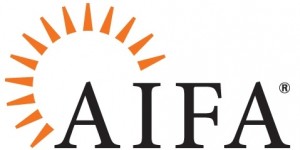
AIF® & AIFA® – Accredited Investment Fiduciary® (AIF®) training empowers investment professionals with the fiduciary knowledge and tools they need to serve their clients’ best interests while successfully growing their business. Advisors who earn the AIF® Designation are immediately able to demonstrate the added value they bring to prospective and existing clients.
Think of Accredited Investment Fiduciary Analyst® (AIFA®) training as the master’s level coursework to the AIF® Designation. As an AIFA® Designee, you are certified to perform fiduciary assessments on internal policies, procedures and workflows to verify or certify an entity’s conformity to a “Global Fiduciary Standard of Excellence.” Only our AIF® Designees in good standing have the foundational skills needed to qualify for the AIFA® Designation. If being the best of the best piques your interest but you don’t yet qualify for your AIFA®Designation, get started with your AIF® Designation.
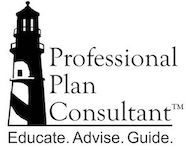
PPC® – Advisors specifically interested in building their retirement plan advisory business pursue the Professional Plan Consultant® (PPC™) Designation. This training course teaches advisors a framework for managing successful and compliant 401(k) plans. Those who successfully earn their PPC™ Designation demonstrate to clients and prospects their knowledge of ERISA requirements for employer-sponsored retirement plans and their ability to carry out plan services with a fiduciary standard of care.
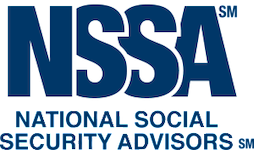
NSSA® – The National Social Security Advisor Certificate Program Helps Professional Advisors Expand Their Practice.
The knowledge obtained through the NSSA® Certificate Program, in conjunction with adherence to the NSSA® standards of excellence, continuing education, and access to ongoing support, enables those who earn the Certificate to perpetually stay at the top of their game for Social Security consulting.
The National Social Security Association, LLC oversees all facets of the National Social Security Advisor Certificate Program including:
The National Social Security Association, LLC is a for-profit firm headquartered in Cincinnati, Ohio.

CASH BALANCE COACH® – The nation’s first training and certification program for financial advisers and retirement plan professionals seeking to enter the fast-growing Cash Balance plan market.
The growth and success of the Cash Balance Coach program—which boasts 1,850 alumni—has coincided with a dramatic rise in the number of Cash Balance plans adopted nationwide, from just over 3,500 active plans in 2008 when Cash Balance Coach first launched, to almost 23,000 active Cash Balance plans today.
Also known as “hybrid” plans, Cash Balance plans combine the high contribution limits of traditional defined benefit plans with the flexibility and portability of a 401(k). Until the passage of the 2006 Pension Protection Act (PPA), the plans were largely unknown, limited in use, and needed legal clarification. The PPA and subsequent IRS regulations issued in 2010 and 2014 made Cash Balance plans simpler and easier for employers to adopt.
Cash Balance Coach is a web-based training program with four modules covering everything from “Cash Balance 101” basics to an overview of compliance testing, plan design case studies, investment strategies, the impact of legislative changes, and many other topics. Each seminar is taught by a leading expert, including the top Cash Balance actuary at Kravitz, the firm’s plan design director, and leading sales consultants. An online exam follows with the opportunity to earn Kravitz’s CBC certification.
The new tax law offers a significant tax break for pass-through business owners, but exclusions and limitations may prevent many professional services firms from benefitting. Fortunately, Cash Balance retirement plans offer a greater advantage than ever, allowing some owners to reduce AGI enough to qualify for the full deduction, 20% of qualified business income (QBI).
MEET OUR TEAM

Total Financial Management, LLC
Joseph (Joe) J. DePascale, CPA/PFS, CFP®, AIFA®
Joe’s expertise is in a variety of areas. He has presented several tax seminars including “Creating Tax Alpha in Portfolio Management”, “Creating Procedural Prudence for Board Members” to name a few. He is a graduate of Youngstown State University. He is a member of the AICPA and Mahoning Valley Accounting Society. He is also certified as a PPC™, CBC and CMFS.

Matune Basile Advisors
John W. Matune, CFP®
With over 10 years of experience in the financial services industry, John W. Matune, a Certified Financial Planner, serves as the Director of Financial Planning at Matune Basile Advisors. Mr. Matune holds a Bachelors degree from Westminster College, and a Masters in Business Administration (MBA) from Youngstown State University. Previously, Mr. Matune served as Vice President for PNC Bank – Wealth Management.

Matune Basile Advisors
Michael J. Basile, CFA
With over 20 years of experience in the financial services industry, Michael J. Basile, a Chartered Financial Analyst, serves as the Chief Investment Officer at Matune Basile. Mr. Basile holds a Bachelors degree from Ohio Northern University, and previously served as Senior Investment Officer at PNC Bank – Wealth Management.
